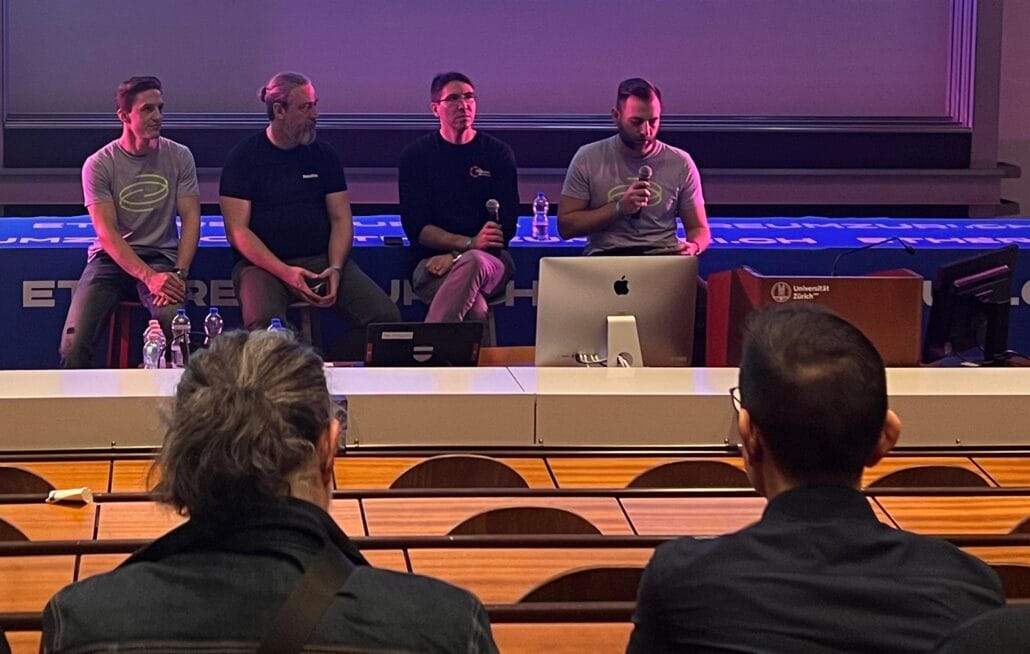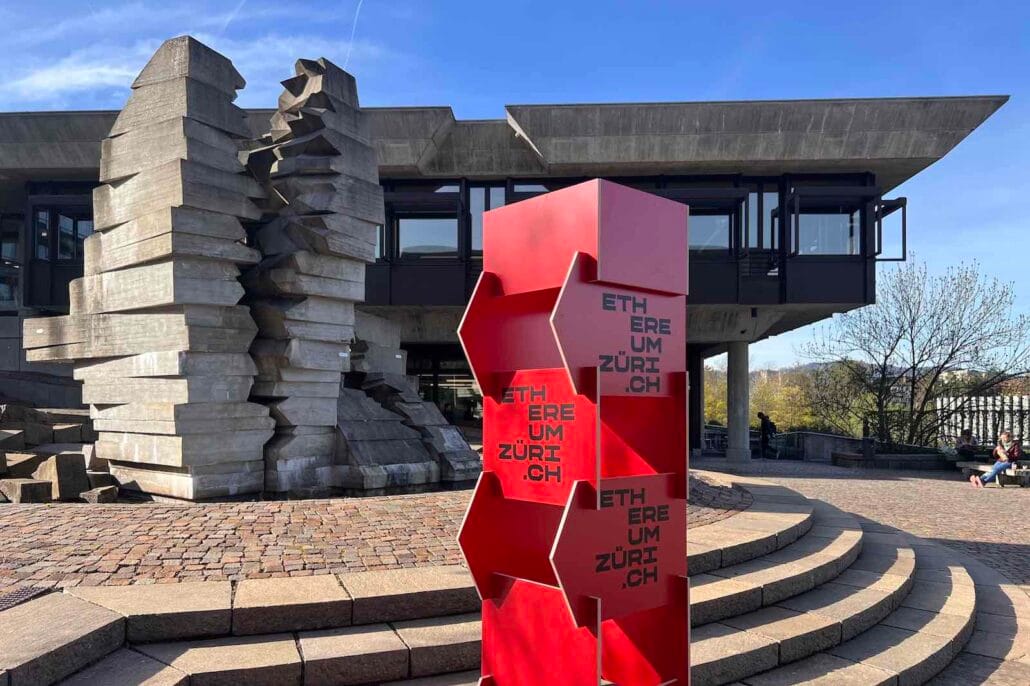In the rapidly evolving landscape of blockchain and digital innovation, the Ethereum Zürich Conference at the University of Zürich organized by Duct Tape and UZH Blockchain Center among many other fascinating Web3 topics like decentralized autonomous organizations also addressed future use cases of digital identities. Nestled in the heart of one of the world’s leading financial and technological hubs, this conference attracts a diverse assembly of thought leaders, developers, entrepreneurs, and enthusiasts, all united by a common passion for exploring the vast potentials of Ethereum and its ecosystem. Among the myriad of topics addressed on 3 days spread over 3 tracks, digital identities and privacy emerged as a focal point of discussion, revealing both their critical importance and transformative potential within and beyond the blockchain domain.
Digital Identities: The Gateway to a New Digital Era
In our increasingly digital world, the concept of identity extends far beyond the traditional bounds of physical documents and credentials. Digital identities represent the digital counterpart of an individual’s, organization’s, or device’s identity, encapsulating personal, financial, and social data in a secure, accessible, and interoperable format. At its core, a digital identity is a collection of validated digital attributes and credentials, enabling secure and seamless online interactions.
The importance of digital identities has been magnified in the context of the blockchain ecosystem. Blockchain technology, with its inherent attributes of decentralization, transparency, and security, offers a fertile ground for reimagining how digital identities are created, stored, and managed. The Ethereum blockchain, in particular, with its versatile smart contract capabilities, presents a dynamic framework for developing digital identity solutions that are not only secure but also respect the user’s privacy and control over their personal information.
The Ethereum Zürich Conference 2024: A Deep Dive into Digital Identities
The Ethereum Zürich Conference 2024 dedicated a significant portion of its agenda to unraveling the complexities and unveiling the opportunities surrounding digital identities and privacy. Panel discussions and presentations explored how digital identities can be leveraged to address contemporary challenges such as data breaches, identity theft, and the lack of privacy control inherent in traditional and centralized digital identity systems. Experts from various sectors provided insights into how blockchain-based digital identities could revolutionize not just the financial world, but also sectors such as healthcare, education, and e-commerce, by enabling more secure, efficient, and user-centric identity verification processes.
This blog post aims to recap a panel discussion that took place during the first conference day, highlighting key insights, innovations, and the future trajectory of digital identities as envisioned by leading minds in the field. As we explore the rich tapestry of ideas and solutions presented, it becomes clear that digital identities on the blockchain are not just a technical innovation but a foundational element for building a more secure, inclusive, and interconnected digital future.

The Ethereum Zurich 2024 conference panel discussion centered on the burgeoning field of digital identities and the implications for the blockchain ecosystem. The dialogue brought together esteemed figures from the blockchain and digital identity sectors: David Bakk and Luca von Wyttenbach from Polimec, Micha Bitterli of Deloitte Switzerland, and Bill Laboon from the Web3 Foundation.
Key Discussion Points and Insights
The Necessity of Digital Identities in Blockchain
Bill Laboon highlighted the transition from pseudonymous blockchain identities to cryptographically verifiable digital identities. This shift aims to tackle the challenges and limitations posed by the current lack of concrete identity on blockchain platforms, facilitating a blend of privacy and verifiability.
Deloitte’s Foray into Digital Identity
Micha Bitterli introduced Deloitte’s initiative into unchained digital identity services, emphasizing the transition from traditional identification methods to digital formats. Deloitte’s approach aims to place control of personal information back into the hands of individuals, enabling them to decide what data to share and with whom.
Polimec’s Implementation and Vision
Luca von Wyttenbach discussed how Polimec leverages Deloitte’s KYC solutions to facilitate secure, decentralized fundraising. Polimec’s framework ensures regulatory compliance while maintaining the pseudonymity of its users, which is vital for the integrity and adoption of Web3 fundraising mechanisms.
Challenges and Innovations in Digital Identity
The panelists explored the technical and operational challenges in implementing digital identities, such as establishing trust and ensuring interoperability among diverse systems. They also delved into the broader implications for audit and verification processes within the digital identity space.
Future Directions and Applications
The discussion ventured into potential future applications of digital identities, extending beyond the blockchain to address broader issues such as combating fake news, enhancing security in digital interactions, and facilitating seamless experiences in smart cities.
Interoperability and Global Adoption
A crucial theme was the importance of creating a globally recognized and interoperable digital identity framework. This would address the limitations of national identification systems and foster a more connected and secure digital world.

About the Panelist
- David Bakk: A background in international business management and blockchain initiatives, with experience across the automotive industry and Big4 firms.
- Micha Bitterli: Over 16 years of experience in auditing and financial advisory, leading Deloitte’s Managed Services platform in Switzerland.
- Luca von Wyttenbach: Co-founder of Polimec, with experience in crypto solutions and financial market strategies.
- Bill Laboon: An educator and author with deep roots in software quality assurance, blockchain technology, and governance initiatives at the Web3 Foundation.
The Ethereum Zurich 2024 conference panel not only highlighted the critical role of digital identities in enhancing security, privacy, and trust within the blockchain ecosystem but also underscored the collaborative efforts needed to push the boundaries of what’s possible in digital identification. With contributions from pioneers like Deloitte and Polimec, the dialogue offered a comprehensive look into the future of digital identities, pointing towards a more inclusive, secure, and interconnected digital world.
Credits and Links
- Pictures by Nick Weisser
- Our recap from Ethereum Zurich 2023: Unleashing Unseen Human Productivity
